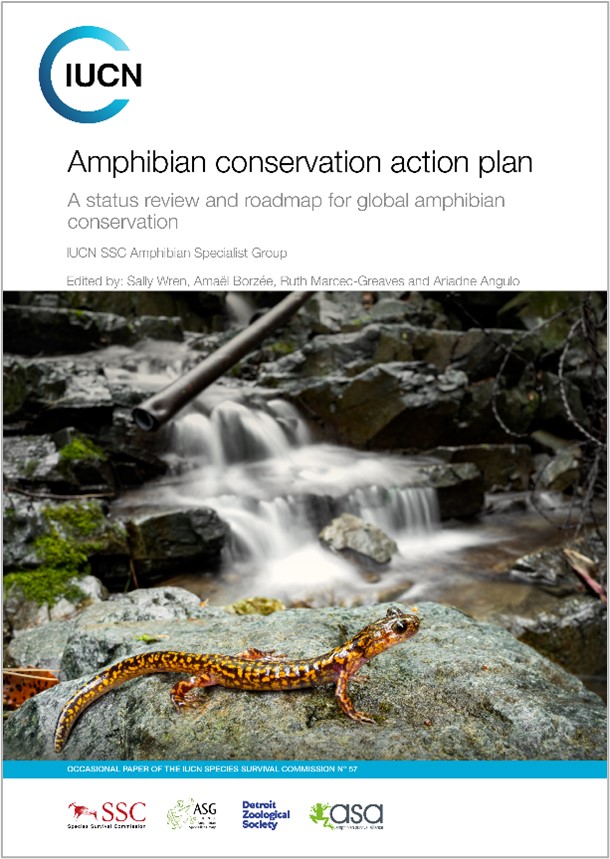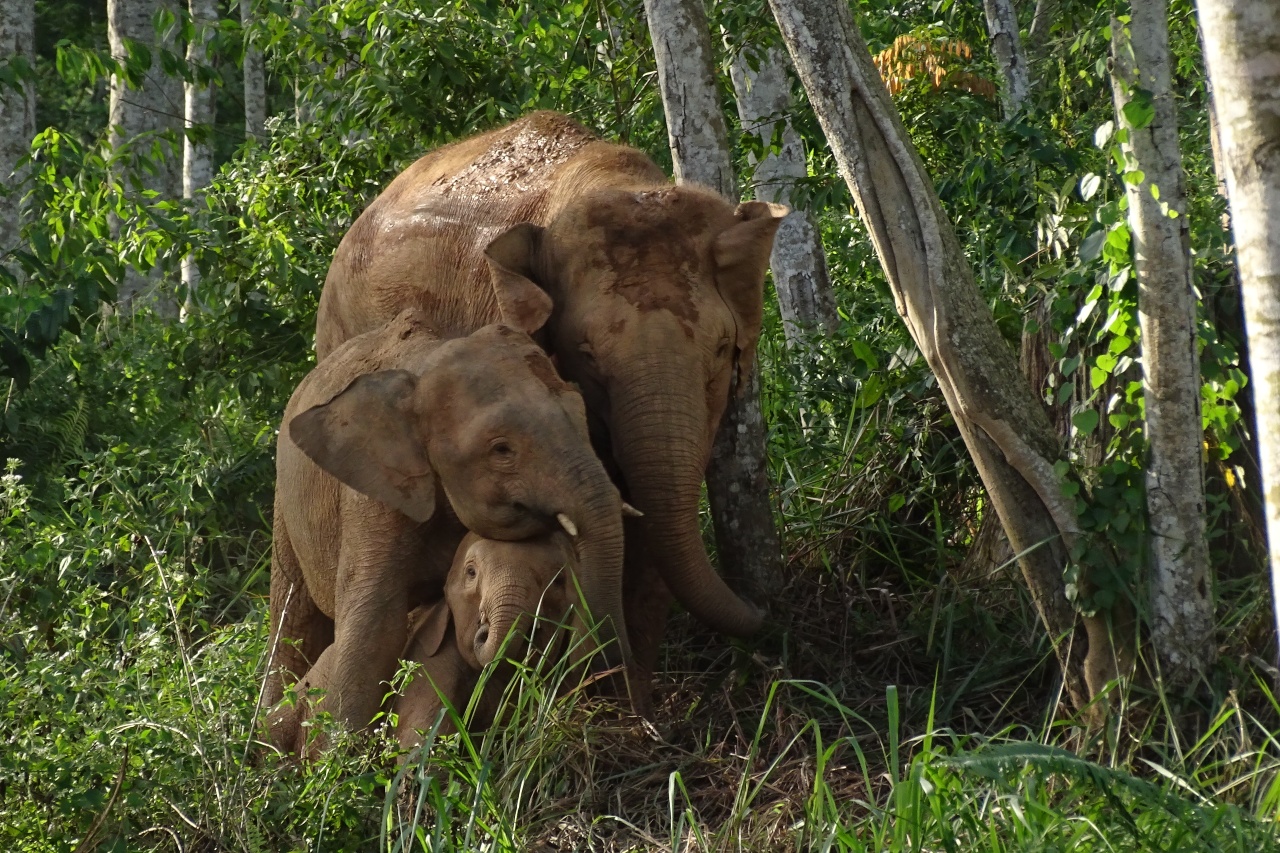Action needed to conserve most threatened vertebrate group - updated Amphibian Conservation Action Plan
The updated Amphibian Conservation Action Plan, a collaborative document authored by more than 100 global experts, is published, collating the most up-to-date evidence base to inform amphibian conservation action.
 ACAP Cover
ACAP Cover
Today’s release, the 2024 Amphibian Conservation Action Plan (ACAP), synthesises developments in amphibian conservation knowledge and practice over the last 15 years. The IUCN SSC Amphibian Specialist Group (ASG), who oversaw the document development, hopes that this freely available updated ACAP will help provide a solid evidence-base for amphibian conservation actions globally, as well as highlighting areas of knowledge where more research is needed.
Nearly 41% of amphibian species are at risk of extinction according to the Second Global Amphibian Assessment published on The IUCN Red List of Threatened Species™ in 2023, which confirmed the group’s status as the most threatened class of vertebrates. Today’s publication updates earlier versions of the global Amphibian Conservation Action Plan, first published in 2007 and updated as a digital resource in 2015. The Plan highlights the need for urgent action to address this conservation crisis.
ASG Co-Chair, and one of the documents editors, Professor Amaël Borzée, said,
The new ACAP is a cornerstone for amphibian conservation globally, as well as regionally, and it provides an advanced tool kit to all interested in the conservation of these species.
Today’s release is the first of two complementary documents that will make up the 2024 ACAP. This ‘status review’ document, conceived and edited by the IUCN SSC Amphibian Specialist Group, is authored by over 100 experts from more than 25 countries, most of them ASG members. It synthesises developments over the last 15 years in major themes relevant for amphibian conservation. For each of those themes the authors identify key knowledge gaps and conservation priorities. After two introductory chapters, the document is divided into three sections focused on different aspects of conservation: Threats, Informing decision-making, and Species management.
The purpose of this updated ACAP document is both to help guide researchers in identifying the most important knowledge gaps, work on which will have a significant impact to on-the-ground action, and to support those implementing amphibian conservation activities to make evidence-based decisions. While not a one-size-fits-all solution – all chapters will not be applicable to all species – conservation practitioners can pull information from relevant sections to help guide their work.
ASG’s goal is that this globally scoped document can inform action at regional and local levels, and likewise that ASG acts as a conduit for regional experiences to feed these into global knowledge, improving amphibian conservation action worldwide.
“To halt and reverse the long-standing amphibian population declines and prevent more species extinctions, it is critical that amphibian conservation becomes both an integral and a conspicuous part of the biodiversity conservation agenda worldwide” added Sally Wren, ASG Deputy Chair, and lead editor. “Adequate financial and human resources and necessary policy measures are key to addressing this decades-long crisis.”
Download ACAP at: https://doi.org/10.2305/QWVH2717
For more background on the conservation status of amphibians, see the recent State of the World’s Amphibian report, which can be downloaded here: https://www.iucn-amphibians.org/state-of-the-worlds-amphibians/
Images for press use, with captions, are available here: https://docs.google.com/document/d/1uIx5hMoz_FFCR6hhnbGgVWcFmERz_4vW/edit?usp=sharing&ouid=116641101195256629245&rtpof=true&sd=true
...............................................................................................................................................................
IUCN SSC Amphibian Specialist Group
The Amphibian Specialist Group (ASG) is part of the Species Survival Commission (SSC) of the International Union for Conservation of Nature (IUCN). It is a volunteer network of over 300 of the world’s leading amphibian experts providing the scientific foundation to inform effective amphibian conservation action around the world. Under the umbrella of the ASG, the Amphibian Red List Authority is the body responsible for overseeing the assessments of all amphibians on The IUCN Red List of Threatened Species.
IUCN Species Survival Commission
With over 10,000 members in 186 territories, the Species Survival Commission (SSC) is the largest of the seven expert Commissions of IUCN and enables it to influence, encourage and assist societies to conserve biodiversity by building knowledge on the status and threats to species, providing advice, developing policies and guidelines, facilitating conservation planning, and catalysing conservation action. Learn more at www.iucn.org/ssc.



